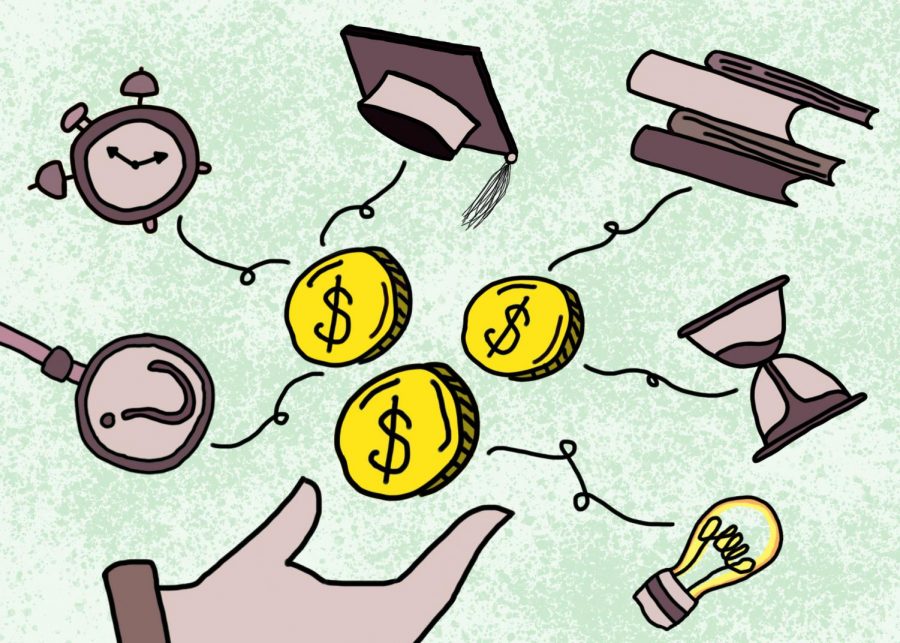Graduate student research and funding broadly impacted by COVID-19
COVID-19 had a big financial impact on Northwestern research. In addition to the limited travel opportunities and on-campus work, students were also impacted by funding changes.
September 27, 2021
COVID-19 stay-at-home orders meant more than weekly Zoom lab meetings and online classes for Ph.D. candidate Melissa Manus.
The fourth-year biological anthropology researcher formerly completed her research in Veracruz, Mexico every summer. Manus had to change and resubmit grant proposals to show funding committees how her research would move forward virtually. She also reduced her fieldwork entirely to the Chicago area due to COVID-19 travel restrictions.
“It was an extremely difficult decision and certainly not what I wanted to do,” Manus said. “But it was sort of one of the COVID casualties of the past year and a half.”
COVID-19 restrictions prevented students like Manus, whose research involved national and international travel, from completing in-person fieldwork. In addition to the limited travel opportunities and on-campus work, students were also impacted by funding changes.
Ph.D. candidate Kyle Craig, a fifth-year anthropology student, said his Fulbright Institute of International Education grant was cut off due to the financial strain of COVID-19. But two other research grants he received, the Wenner-Gren grant and the American Center of Research grant, continued to fund his efforts over the pandemic, Craig said.
“Basically, the (Wenner-Gren foundation) didn’t take away my money,” Craig said. “I had to revise my research and explain to them how I’m going to be moving on to digital methods.”
The Wenner-Gren foundation is privately funded and distributes grants for anthropological research globally, according to its website. Manus also revised her Wenner-Gren application in summer 2020. The National Science Foundation, which supplied her second grant, was more ambiguous about funding, she said.
“The NSF, frankly, didn’t say too much about COVID,” Manus said. “There was nothing from the NSF about redoing (my proposal), so (it) just stayed as it is.”
While Manus said she did not receive funding from either the NSF or Wenner-Gren initially, she received both grants after reapplying in the fall. She said she considered the first round of applications as an opportunity to get strong feedback for the next one.
Many research students initially had trouble adjusting to conducting their work during the pandemic, according to fifth year chemical and biological engineering student Blake Rasor. Although funding from both the NSF and the Department of Defense were not interrupted, he said in-person capacity restrictions impacted a few of his lab’s research projects.
“COVID-19 capacity restrictions led to a couple projects getting cut or reduced significantly so that we could have something finished to report back to our funding agency,” Rasor said. “We were worried that especially the Department of Defense funding, and really all government funding, can be pretty strict on timelines.”
While capacity restrictions lengthened research projects like Rasor’s, some students were more concerned with the University’s lack of graduate student funding. NU Graduate Workers reported on how the University laid off hundreds of service workers and did not grant graduate students a universal sixth year of funding despite having the money to do so, according to Craig.
Craig said that the University didn’t offer enough financial support to graduate workers during the pandemic. Graduate workers’ contributions to the school are essential, he said, and support for their work came from University workers at the bottom of the payroll.
“People that are coming together and forming those mutual aid networks are also some of the lowest paid people in the University,” Craig said. “(They) provide essential resources to an essential component of our community.”
Despite issues with funding and research timelines, some students felt that revising research plans turned into a positive learning experience. Manus said she used data collected from projects completed before the pandemic to write two research papers.
Manus added that support from her research mentors and advisors was paramount in helping her continue her research journey.
“I’ve been extremely well-supported,” Manus said. “It’s great that we have a network of people here to help us know exactly what we should be applying for and have seen students be successful at that.”
Email: [email protected]
Twitter: @swarthout_iris
Related Stories:
— #OneYearOut, NUGW continues call for funding extensions and worker protections
— Summer undergraduate research continues in second year of pandemic


